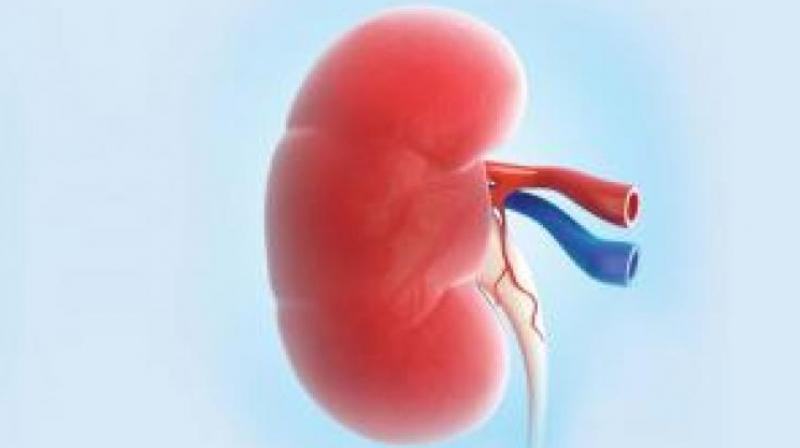Kidney disease may up diabetes risk, says study

Washington: Kidney dysfunction may increase the risk of diabetes, according to a study which found that the culprit behind the relationship is urea.
Diabetes is known to increase a person's risk of kidney disease. The research suggests that the reverse also is true: kidney dysfunction increases the risk of diabetes.
The researchers from the Washington University in the US deduced that a likely culprit of the two-way relationship between kidney disease and diabetes is urea.
The nitrogen-containing waste product in blood comes from the breakdown of protein in foods. Kidneys normally remove urea from the blood, but it can build up when kidney function slows down.
The findings, published in the journal Kidney International, are significant because urea levels can be lowered through medication, diet - for example, by eating less protein.
"We have known for a long time that diabetes is a major risk factor for kidney disease, but now we have a better understanding that kidney disease, through elevated levels of urea, also raises the risk of diabetes," said Ziyad Al-Aly, from the Washington University.
"When urea builds up in the blood because of kidney dysfunction, increased insulin resistance and impaired insulin secretion often result," Al-Aly said.
The researchers examined medical records to dissect the relationship between kidney disease and diabetes.
They evaluated the records of 1.3 million adults without diabetes over a five-year period, beginning in 2003.
A common blood test that measures the amount of urea nitrogen found in the blood showed that 117,000 of those without diabetes - or nine per cent - had elevated urea levels, signalling poor kidney function.
Those with high urea levels had a 23 per cent higher risk of diabetes - a figure researchers determined by comparing risk between those with high and low urea levels.
The researchers documented new cases of diabetes in 2,989 of every 100,000 people with low urea levels and 3,677 new cases of diabetes among those with high urea levels.
"The risk difference between high and low levels is 688 cases of diabetes per 100,000 people each year," Al-Aly said.
"This means that for every 100,000 people, there would be 688 more cases of diabetes each year in those with higher urea levels," Al-Aly added.

